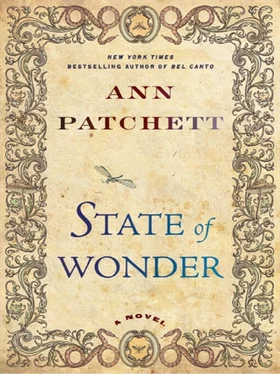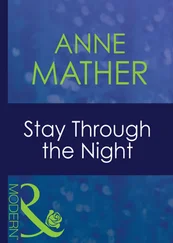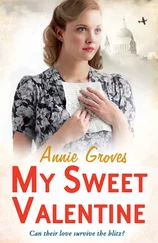Milton, startled, looked up. “There you are!” he said. “Then finding you this morning is one thing I can cross off my list.”
“You said you’d be here early,” Marina said. “And there were a few things I needed myself.”
“There’s no end to what one needs in the Amazon,” Dr. Swenson said. “What isn’t eaten by insects is quick to rot. That’s why our friend Rodrigo does such a booming business. Nature provides a state of constant turnover. Still, I would think if you are leaving today you’d be better off making your purchases at home, unless you’re looking for souvenirs.”
There was nothing to do but say it. Marina told her she would be coming along. This did not seem to surprise Dr. Swenson. She took the news as if it were both unpleasant and expected. “You’ve been talking to Mr. Fox.”
Marina looked up towards the high shelves as well, wondering what she might be seeing there. “At the very least I should get Anders’ things.”
“Raisins,” Dr. Swenson said to Milton, who added it to the list. “Tapioca.” She turned to Marina. “Does it matter at all that you are not invited?”
It would be easier had she been invited but to the best of her knowledge Dr. Swenson had never welcomed students to her classes or interns to the program or patients to the hospital. She couldn’t see how this experience should be any different. “Not really.”
“Dr. Rapp always said that people would attach themselves to an expedition.” She moved very slowly, putting her hand first on a box of crackers, next on a bag of coffee. Milton continued to write and then Rodrigo was writing as well. An older woman with a baby tied across her chest in a bright red scarf opened the door and, seeing the people who were inside, turned and left without comment. “Certainly they did with him. I saw it myself. An endless succession of mongrels and malingerers, the laziest dropouts who fancied themselves explorers. He made his policy clear: he was not responsible for their food, their shelter, their safety, or their health. He didn’t waste his time discouraging them because frankly there was no discouragement they could not withstand. All of the energy they could have put into their intelligence they had used to develop their tenacity. But what I quickly learned was that their tenacity was for going, not for staying. Once they were out on the trail they fell like flies. Some took a day, two days, others were gone in a matter of hours, and Dr. Rapp never stopped for them. He remained beautifully consistent: he was there to work and he would continue to work. He would not ferry back the weak and the lame. They had chosen to get themselves in and they would simply have to figure the means to get themselves out. People were quick to accept these terms until they themselves were weak. Then they changed their tune entirely, then they said Dr. Rapp was heartless. They couldn’t slander him as a scientist but they said no end of scurrilous things about him as a man. He hadn’t rescued them! He hadn’t been their father and mother! I will tell you, none of that troubled his sleep. If he had made them his responsibility, either by dissuading them from their ambitions or by bailing them out of their folly, the greatest botanist of our time would have been reduced to a babysitter. It would have been an incalculable blow to science, all in the name of saving the stupid.”
The air, ever heavy, now was paralyzed. Milton had slipped his pencil and pad in his pocket without thinking, and Rodrigo had put his pencil down as well. While Dr. Swenson continued to calculate how much food she would need to take back with her, the other three stood breathless and unblinking. Marina felt as if she were trying to remember the answer when there hadn’t been a question posed. They were all waiting. “I don’t think you’ll find me to be nearly that much trouble,” she said finally.
Dr. Swenson, who had been distracted by a small bin of socks, did not look up. “As much trouble as what?”
“The mongrels,” Marina said. “The malingerers.”
“Don’t be so self-referential. I was telling you a story. I wasn’t telling a story about you.”
At that Milton inhaled as abruptly as Nixon at his desk. “There you go,” he said, willing himself to accept the explanation. “How many cans of apricots?”
Dr. Swenson waited a moment, as if making a tally in her head. “A case more than usual,” she said, looking at Marina. It was impossible to know how many apricots a person would eat once they had been removed from civilization.
It was agreed then that Milton would pick Marina up in front of the Hotel Indira at eleven, and despite the heat of that hour she was standing ready at the front of the hotel, tucked beneath the awning with her half-empty bag. She had said goodbye to Tomo, who was more than happy to store her coat and sweaters until she returned. She had not said goodbye to Mr. Fox. This city, so busy when she woke up that morning, was practically empty now. The dogs pressed themselves into doorways beneath thin strips of shade. The cars drove by slowly, as if every driver was trying to decide if he was the one who was supposed to take Marina to the docks. They looked at her carefully and tapped their horns.
When Milton did arrive, Easter was in the passenger seat. When he saw Marina through the open window, he reached both of his arms out to her as if he were hers alone in all the world. There was something brilliant about being recognized, the happiness on his face entirely disproportionate to his knowing her. Marina went to him and took both of his small hands in her hands and he gave her an enthusiastic shake. Milton put a thumb on the boy’s shoulder and pointed to the backseat. Easter immediately flipped backwards, a trick he had been saving.
“Forgive me,” Milton said in a tired voice when she got in the car. He was sitting on a folded towel, his shirt and pants and hair soaked through. Even the small straw hat on the back of his head was wilted and damp. There could have been a rainstorm blocks from here that Marina never saw. He could have fallen in the river.
“Forgive you for what?”
Milton shook his head. “It took us longer to load the boat.” He took out a smaller towel and wiped down his face.
Easter was craning his entire upper body out the window to see as far as he could in every direction: boy as turtle, car as shell. The wind dried out last night’s soccer shirt and ruffled the dark, wet curls against his neck. Looking at him, Marina realized he was a marker. The boat was loaded, Dr. Swenson was on the boat. If Milton hadn’t taken Easter there would have been no reason for her to wait the minutes it took for him to drive to the hotel. “It’s not as if I had anywhere else to go,” she said.
“He likes the car,” Milton said, tilting his head back.
“I’m sure he does.”
The dock was farther up river than Marina had been before. The wooden planks on the walkway were warped by the endless succession of sun and hard rain. A collection of rusted tugs and houseboats that looked like they had been pieced together over the course of many generations bobbed between the low-riding water taxis. From the top of the bank she could see the freighters and cruise ships in the distance lining up against the great cement piers. Below her was a small figure pacing beneath the shade of a black umbrella.
“We are late, Milton,” Dr. Swenson called. The engine of the boat was running and a pale lavender smoke spread out across the water.
“This would be the time to change your mind,” Milton said quietly. “If you are inclined to change your mind.”
Easter flew ahead of them now, running in flip-flops, forsaking the perilous steps for the more perilous slope of mud and rock and weed. The boat was a pontoon, the kind of boat her father had rented for a weekend every summer when Marina was young and her parents were married. Her father was not much for boating but the pontoon he said was like a pony rented out for children: stolid and low, not given to sudden movements.
Читать дальше












